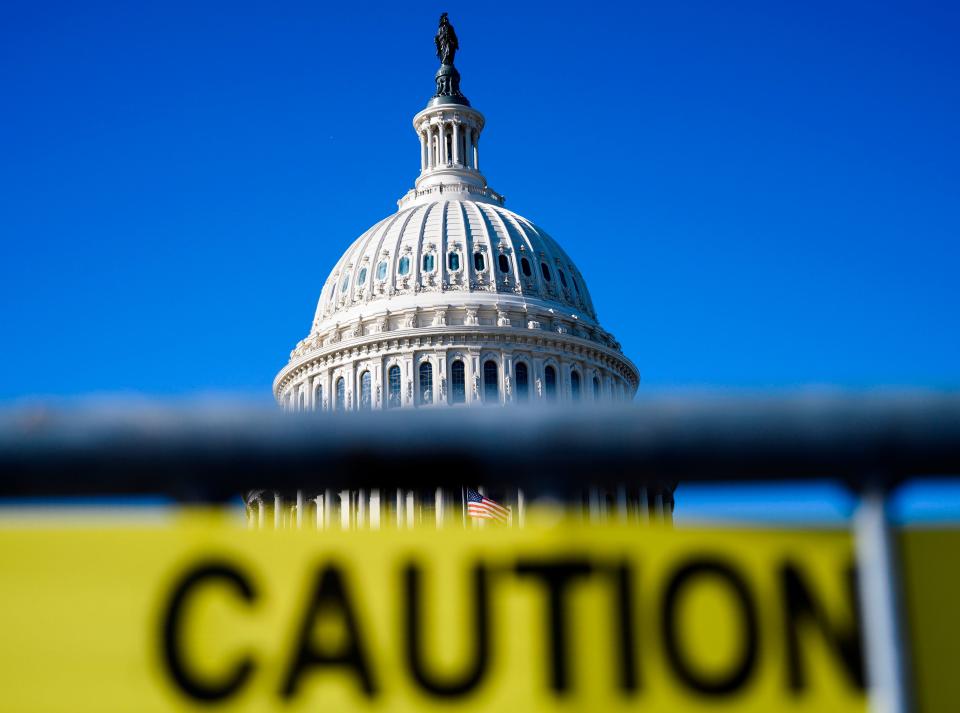US government shutdowns used to be rare. That’s increasingly no longer the case.
- Oops!Something went wrong.Please try again later.
WASHINGTON − After the first significant federal government shutdown – a showdown between congressional Republicans and President Bill Clinton in 1995 – it was 17 years before the next big brinkmanship.
But since then, fiscal faceoffs have become more common as political polarization has increased.
If Congress fails to pass a funding measure by Saturday, as looks increasingly likely, the resulting shutdown would be the fifth in the past decade, according to the Congressional Research Service. That includes some shutdowns that lasted weeks and one that lasted only a few hours.
Rating agencies are paying attention, which escalates the potential economic damage.
Moody’s Investors Service warned that a shutdown would be a “credit negative” for the U.S. because of what it would say about the nation’s ability to govern itself compared with countries with similar credit ratings.
“In particular, it would demonstrate the significant constraints that intensifying political polarization put on fiscal policymaking at a time of declining fiscal strength,” Moody's report reads.
Shutdown impacts Air traffic controller shortage could worsen in government shutdown, Buttigieg warns

In August, Fitch Ratings downgraded the government’s credit rating because of rising debt and a “steady deterioration in standards of governance” over the past two decades.
The ratings cut – from the highest possible rating to one notch below – was only the second time in the nation’s history that its credit rating was downgraded by one of the ratings agencies.
Fitch’s move came months after it had warned it could take that step as congressional Republicans and President Joe Biden were locked in a battle over raising the nation’s borrowing limit so the Treasury could pay its bills.
In addition to raising the debt limit, the eventual deal was supposed to also smooth the way for passing the annual budget bills needed to keep much of the government running past Saturday. But some House conservatives want deeper spending cuts than those agreed to, making it extremely difficult for House Speaker Kevin McCarthy, R-Calif., to get a funding measure through his chamber.
Biden accused McCarthy on Wednesday of abandoning their agreement and getting cornered by the right flank of the GOP to protect his speakership.
“We made a deal,” Biden said, stressing that he personally negotiated with the speaker to make sure the U.S. didn’t renege on debt. “Now they come along and say ... 'We didn’t mean it.'”
McCarthy has said he wants Biden to return to the negotiating table.
“All the president has to do, call us up, let’s sit down and get this done before the end of the week,” McCarthy said Tuesday.
Even if Washington finds a way to avert an immediate suspension of many government functions, such as through a temporary spending patch, major divisions remain. The parties are far apart on spending priorities, on how to address the massive federal debt and whether tax cuts or tax increases are needed. Even among Republicans, the divisions could be difficult to reconcile, which raises the warning flags for financial analysts.
Contributing: Joey Garrison.
More: What was the longest government shutdown? See how long each past shutdown lasted.
This article originally appeared on USA TODAY: Why 2023's possible federal government shutdown won't be the last

